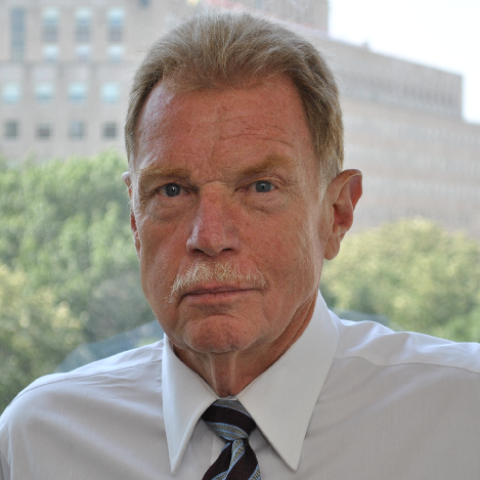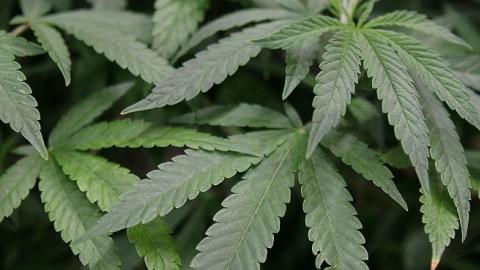You would not tie an anchor to a drowning man and claim you were helping him swim. Yet the Obama administration's Department of Justice has done something quite similar with a determination that Native American reservations may become centers for "legal" marijuana sales and use, notwithstanding that this policy stands in stark violation of the federal Controlled Substances Act.
This new push for expanding marijuana use is legally suspect. Prior DOJ memoranda suspending enforcement of federal drug laws, such as in Colorado, were contingent on the alignment of marijuana sales and use with prevailing state laws or regulatory regimes. But Native American reservations are not legally equivalent to states; rather, they are "dependent domestic sovereigns," broadly subject to federal law.
But there is worse in store. The impact on both Native Americans and the broader principles of political and economic integrity will be deeply damaging.
Native American history teaches that many tribes have suffered as much from well-intentioned but devastating policies offered by "friends" as they have from malign attacks by those who sought to destroy their culture. To this litany of harm from good intentions can now be added "legal" dope and the fanciful notion that drug proceeds will lift Native American economies more than they will worsen their health and criminal-justice burden.
There is the threat to Native lives from substance abuse, which has a history of degradation, violence, and pathology for First Americans. Alcohol abuse is pronounced, while heroin and methamphetamine are established threats, especially for tribes adjacent to Southwest Border smuggling routes. According to the National Household Survey on Drug Use and Health (NSDUH), the Native American rate of past-month illicit-drug use is 29 percent higher than the rate for whites (12.3 percent vs. 9.5 percent), while the Native rate of past-year drug abuse or dependence is 77 percent higher (14.9 percent vs. 8.4 percent).
Such afflictions are worse for the vulnerable. Natives suffer disproportionately from the harms of drugs due to poverty, remoteness, and inadequate public-health resources, including the limitations of the Indian Health Service. Effective reporting from Sari Horowitz of the Washington Post documents the pathologies of reservation life among the 566 federally recognized Native groups (found in 35 states), including high rates of poverty, unemployment (reaching 87 percent at Pine Ridge, S.D.), domestic abuse, sexual violence, school dropout, early death, and suicide.
How conceivably could adding increased supply (and acceptability) of an addictive drug associated with psychosis, IQ and learning loss, increased susceptibility to suicide, school failure, and greater need for drug treatment be anything other than a needless disaster?
In addition to the damage from addiction, there is damage to the wider community. Internationally, legal" drug markets are known to be accompanied by "organized crime, prostitution, theft, violent coercion, neighborhood degradation, and economic loss, as documented by the Netherlands' cannabis cafes." Meanwhile, Colorado is already experiencing "lawsuits filed by businesses claiming harm from marijuana sales operations, based on racketeering and organized-crime statutes.
Consider that Southern California alone is home to nearly 30 recognized Indian tribes, with a total population of nearly 200,000. Were they to become purveyors of marijuana, by the experience of Colorado, they could quickly become smuggling centers for black-market marijuana distribution to surrounding communities and states. Reservation boundaries could turn into "domestic borders" comparable to international borders, where drug operations by criminal organizations thrive in driving illegal cultivation and trafficking.
This determination also presents an obvious course for fueling corruption in reservation politics, and equally worrying, U.S. financial affairs, for the emerging market in illicit drugs threatens our economic integrity nationwide. Not only has the DOJ set about dismantling, in states that have legalized, basic banking and money-laundering protections against criminal organizations penetrating the financial system, but there is further risk from another center of illicit finance and money-laundering: the cash business of casinos.
There are nearly 500 Indian gaming" "operations found in nearly 30 states, and while the revenues are great (estimated at $27 billion annually), many are in serious debt. What would another cash business, dealing in addiction and in violation of federal law, presumably paying no federal taxes, do to tribal integrity? What could this contribute to the power of transnational criminal cartels?
Already, marijuana-related law firms from Colorado are guiding those tribes with casinos in setting up high-potency marijuana operations. The potential for public corruption is high, as is the certainty of increased suffering among America's longest victims.
Legal reservation dope is the most dangerous and shameful policy that has yet been proposed by the Obama administration.




















